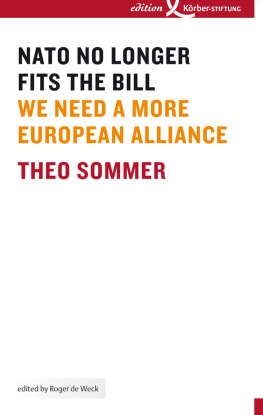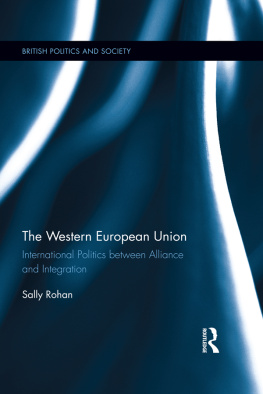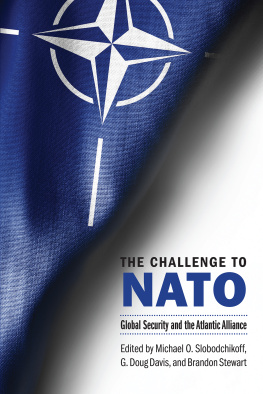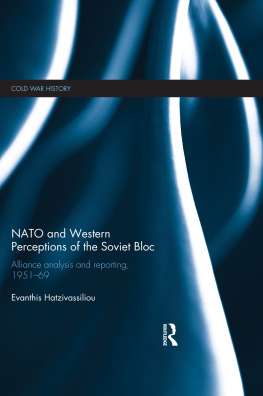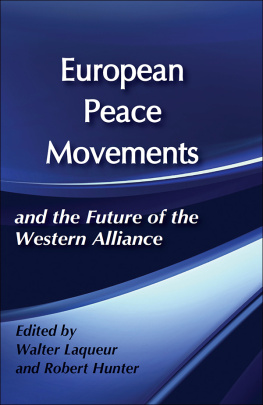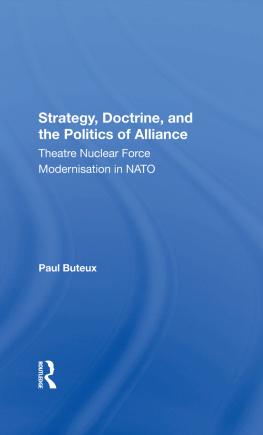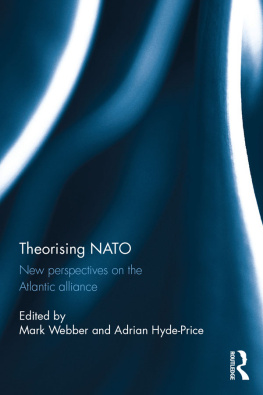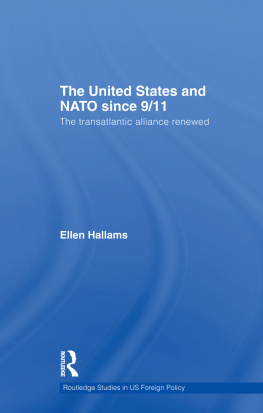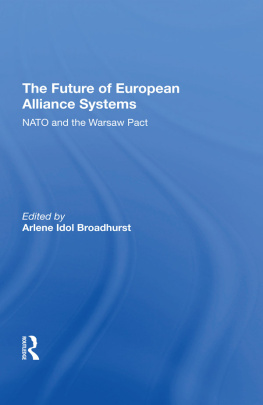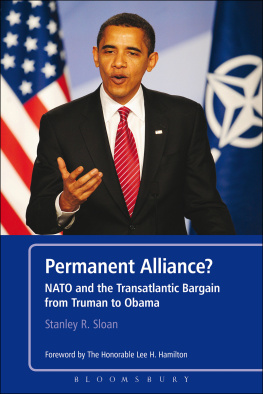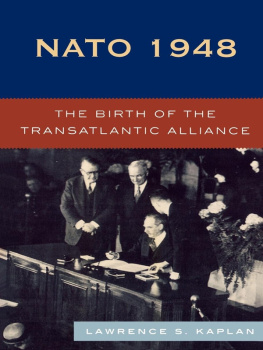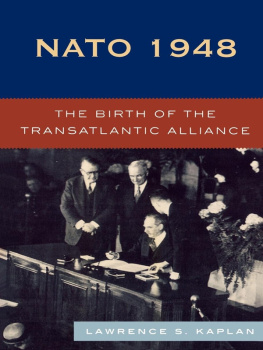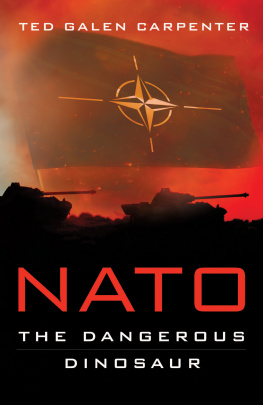NATO No Longer Fits The Bill
We Need A More European Alliance
Theo Sommer
Translated by Alfred Clayton
Preface: Brief Moments of Eternity
There is no such thing as an eternal alliance. And yet someone who enters into a union (such as marriage, for example) will try to suppress in his own mind, in that of his partner, and in the minds of other people the idea that one day it will all come to an end. It is worth remembering that some of the eternal alliances in the Middle Ages were broken even before the sealing wax was dry. And let us not forget what the Soviet anthem proclaimed. Unbreakable Union of freeborn Republics, / Great Russia has welded forever to stand. / Created in struggle by will of the people, / United and mighty, our Soviet land! In this case forever lasted from 1922 to 1991.
That is the problem with NATO. The Western alliance had only one opponent, and he no longer exists. Its founding fathers may have wanted it to be a bulwark, but what is there left to contain? And in any case, the West is no longer the community of values that it used to be. In 2010 the transatlantic alliance adopted a Strategic Concept that has no focus, which Theo Sommer regrets. Verbiage, repetitiveness and nebulosity have to cover up a blatant lack of unity and concrete facts.
This was written by someone who knows the petty meetings in Brussels at which departments and sub-departments spend hours at a time arguing about the phrasing of a single paragraph. Notwithstanding the frustration, Sommers enduring interest in security policy has always gained the upper hand. Few people understand the subject as well as Ted, who in the 1960s studied under Henry Kissinger, and in the 1970s was in charge of Helmut Schmidts planning staff at the Ministry of Defence. As late as 2001 Sommer wrote a report on how the German Army handles hazardous substances, and in particular the uranium ammunition used in Kosovo. He visited German and NATO troops in Kosovo and in Afghanistan on a number of occasions, and sat in the command post during a nocturnal gunfight not far from Kundus.
For well on five decades he has taken a theoretical and a practical interest in security policy as an observer, an actor, and a knowledgeable expert who can also look at the subject from a distance, something which makes it so much easier to assess. In this book Sommer sums up his beliefs and opens up new perspectives. Like Helmut Schmidt he considers NATO to be a giant bureaucratic kraken, but in contrast to the former German Chancellor he does not (as yet?) consider it to be superfluous, since one does not give up ones fire insurance simply because one does not like the fire brigade.
Sommer believes that debates about the alliance must be wrested from the bureaucratic apparatus in Brussels and restored to the political level. NATO reformers should reduce the prevalence of purely military thinking as practised by the Pentagon; they should define the realistic borders of NATOs area of operations; and shift from a crippling consensus principle to a coalition of the willing. Above all the author enters a plea for a European pillar next to the American one. At any rate the Europeans should resist the tendency, which is especially noticeable in America, to see in the enemies of the past the enemies of the future. Otherwise NATO will continue to be a backward-looking alliance, and will simply fade away and disappear.
Roger de Weck, Editor of series Standpunkte
Preface
Before the end of the Second World War my birth cohort was too young to serve in the Wehrmacht, and after the war it was too old to serve in the Bundeswehr, and I have never been in an army. However, during the fifty years of my career as a journalist I devoted a significant part of my professional life to questions relating to defence and retaliation, the intricacies of nuclear strategy, and the never-ending and recurring disputes within the Atlantic alliance. At the beginning of the 1960s I studied International Relations in the Nuclear Age at Harvard University under a young assistant professor called Henry Kissinger, and at the beginning of the 1970s I was head of the planning staff at the Hardthhe headquarters of the Ministry of Defence under Helmut Schmidt, then West German Minister of Defence. Thereafter I was a member of two defence structure commissions, the first in Bonn (197072) and the second in Berlin (19992000), where I served as vice-chairman of the Weizscker Commission. For well-nigh twenty years I was a member of the council of the International Institute of Strategic Studies in London. And as an editor of DIE ZEIT I wrote more leaders about the East-West conflict and the balance of tteror, about armament and disarmament and NATO than would fit into two thick ring files. And the subject has continued and continues to interest me.
For my generation, NATO was of crucial importance. It was the life insurance policy of the West Germans. And in retrospect there can be no doubt about the fact that without the Western alliance the red flag with the hammer and sickle would now be flying over us all. NATO was the most powerful, most reliable and most successful defence alliance the world had ever seen. In the years between 1949 and 1989 it repelled numerous Soviet attacks on the post-war status quo, for example, during the Berlin Blockade in 194849, again during the Berlin crisis 19591962, and during the missile conflict between 1979 and 1987, which has gone down in history as a domestic and foreign policy dispute concerning the deployment of medium-range nuclear missiles. In the end the Atlantic alliance was victorious. It triumphed in the historic struggle between East and West without having fired a single shot. On 9 November 1989 the Berlin Wall came down, and subsequently the Iron Curtain was lifted section by section, the communist system collapsed throughout the eastern bloc, the Warsaw Pact was dissolved in the middle of 1991, and at the end of the year the Soviet Union fell apart into 17 states. Three years later the Red Army left East Germany.
With the disappearance of its opponent in the east the alliance may not at one fell swoop have lost its right to exist, but quite possibly its raison dtre. Since then the mission, the purpose, indeed even the whole point of NATO have been called into question. Two decades after the end of the Cold War there are still no answers to a series of extremely important questions. Do we actually still need the alliance? And if so, what should be its form, size and organizational level? What should its mission be? Territorial defence, global outreach and intervention as global policeman on an American leash, or as a force kept in reserve for United Nations peacekeeping and peace-creating missions? And what kind of price tag can our nations stomach at a time when the preservation of economic and social stability obviously takes precedence over military entanglements in distant parts of the world, no matter whether they are based on geostrategic and geopolitical considerations or on humanitarian motives?
It is time to formulate an answer to these crucial questions.
I. The Beginnings
Why is NATO no longer needed, or at least NATO as we know it today? At glance at its origins gives us an irrefutable answer: because the world has changed. It has changed so completely that it is no longer possible to deduce in the style of a prayer wheel a justification for business as usual by referring to the historical roots of the Atlantic alliance.
Let us think back for a moment to the situation four years after the end of the Second World War. Anxieties about a resurgence of German militarism had subsided; at any rate, they were increasingly overshadowed by a new nightmare, the Soviet threat. The alliance was founded in order to deal with this problem. On 4 April 1949 the foreign ministers of twelve Western countries met in the auditorium of the State Department in Washington and put their signatures to the North Atlantic Pact, which was NATOs birth certificate.


